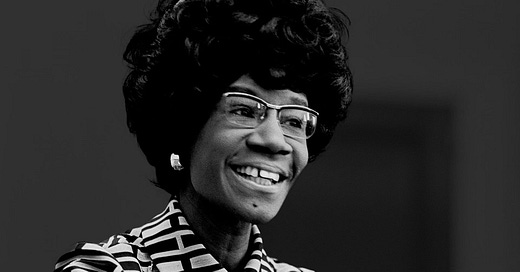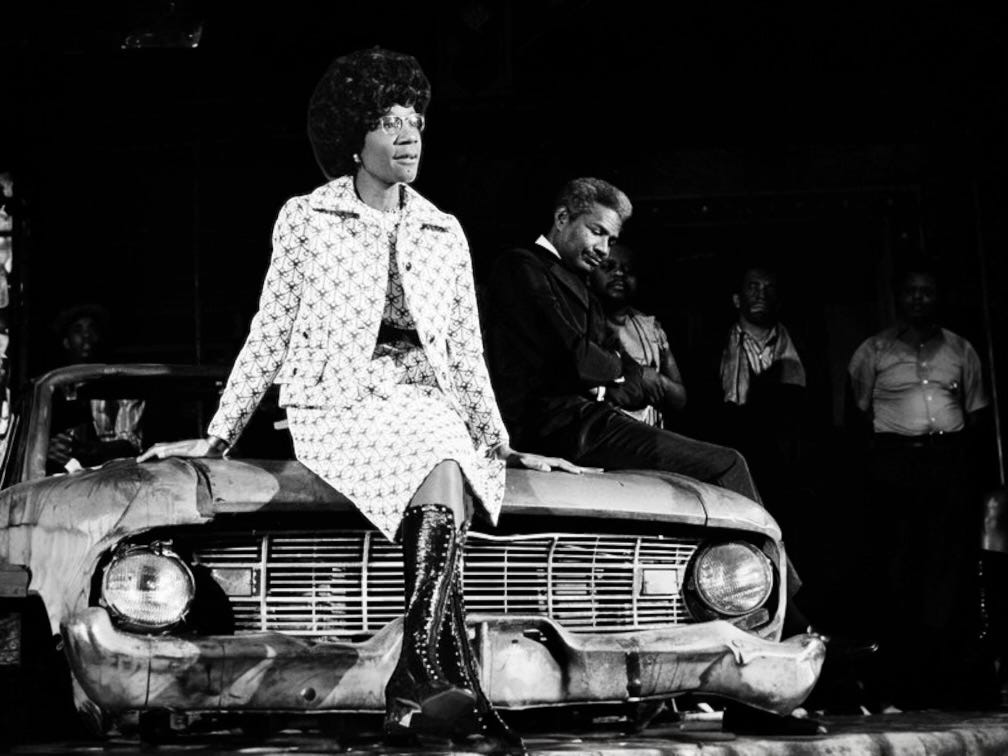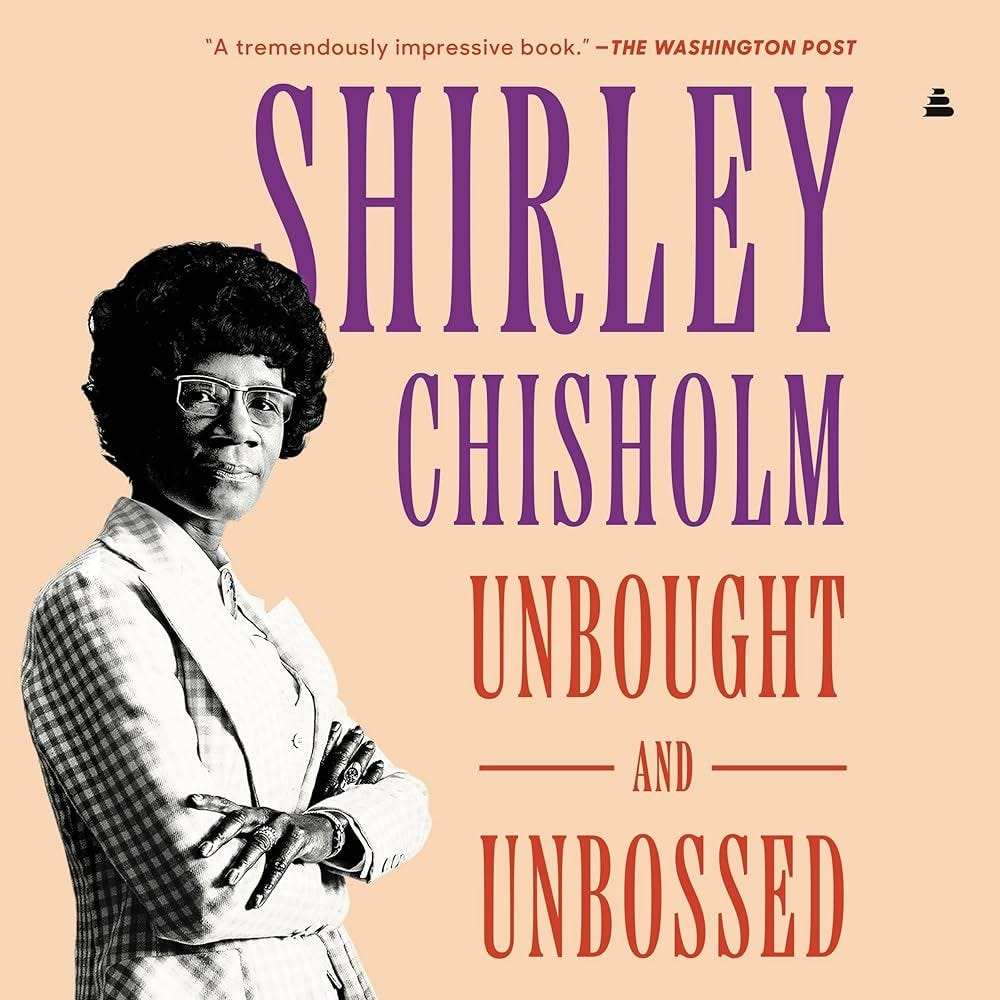Shirley Chisholm’s life was a testament to the power of defiance, determination, and unwavering commitment to justice.
Born in Brooklyn in 1924 to immigrant parents, Chisholm's journey from a nursery school teacher to a political trailblazer was marked by numerous groundbreaking achievements tied to her tireless advocacy for marginalized groups.
Her academic prowess was evident early on, as she graduated from Brooklyn College in 1946 and went on to earn a master's degree in early childhood education from Columbia University. However, it was her foray into politics in the 1950s that set the stage for her historic contributions.
Chisholm’s political career began within the local Democratic Party, where she faced and overcame substantial resistance to become the second Black American in the New York State Legislature in 1964. This victory was merely the prelude to her election to the U.S. House of Representatives in 1968, making her the first Black American woman to serve in Congress.
As a congresswoman, Chisholm quickly earned a reputation as a formidable liberal advocate, staunchly opposing weapons development and the Vietnam War while championing full-employment proposals. Her role in co-founding the National Women’s Political Caucus in 1971 further underscored her dedication to women's rights and civil liberties.
In 1972, Chisholm shattered another glass ceiling by becoming the first Black American to seek a major party's nomination for U.S. President and the first woman to run for the Democratic Party's presidential nomination.
Her campaign, though underfunded and poorly organized, was a powerful statement against the entrenched racism and misogyny of the time. Despite being blocked from participating in televised debates and facing considerable discrimination, Chisholm entered 12 primaries and secured 152 delegate votes.
Her motto, "Unbought and Unbossed," encapsulated her fierce independence and commitment to integrity, resonating deeply with voters disillusioned by traditional politics.
Chisholm’s run for the presidency was fraught with challenges, from racism and misogyny to lack of support from the Democratic establishment and significant media exclusion. Her campaign struggled with inadequate funding, managing to spend only $300,000, a stark contrast to her opponents.
Despite these obstacles, Chisholm’s perseverance and bold stance on social justice earned her the nickname "Fighting Shirley." Her campaign slogan, "Unbought and Unbossed," was not just a catchphrase but a declaration of her refusal to be controlled by political machines or special interests, emphasizing her authenticity and courage to challenge the status quo.
The barriers Chisholm faced were immense. She often noted that she encountered more obstacles as a woman than as a Black American, highlighting the dual layers of discrimination she had to navigate. The Democratic establishment largely ignored her, and she even faced opposition from prominent Black male colleagues.
The media initially blocked her from televised primary debates, and she had to take legal action to secure a single speech. Furthermore, she received numerous death threats, complicating her efforts and underscoring the dangerous environment in which she operated.
Chisholm's legacy is captured in her writings and the numerous biographies about her. Her memoirs, "Unbought and Unbossed" (1970) and "The Good Fight" (1973), offer personal insights into her journey and her fight against systemic barriers.
These works, alongside biographies like Barbara Winslow's "Shirley Chisholm: Catalyst for Change" and Rochelle Riley and Kristina McMorris's "A Seat at the Table: The Life and Times of Shirley Chisholm," provide comprehensive accounts of her life and legacy.
"Shirley Chisholm: The Last Interview: and Other Conversations" offers a firsthand look at her thoughts, motivations, and aspirations, further contextualizing her impact on American society.
Shirley Chisholm’s pioneering role in politics redefined power for Black women. She demonstrated that true leadership is not about fitting into existing molds but about breaking them to create new possibilities.
Her unyielding spirit and dedication to social justice have left an indelible mark on American politics, inspiring generations to come. Chisholm's life reminds us that progress often requires the courage to stand alone, the resilience to face insurmountable odds, and the vision to see beyond the barriers of the present.
Her legacy is a powerful call to action for all those committed to justice, equality, and the empowerment of marginalized communities.
Join Us Today and Support Independent Writing
As a supporting member of "Black Books, Black Minds," you'll dive deeper into a world where your book passions thrive. For just $6 a month or $60 a year, you unlock exclusive access to a close-knit community eager to explore groundbreaking reads.
💥 You can contribute to my independent writing journey via the “subscribe” button above . Or you can tip me some coffeehouse love here (dirty chai fan here).
Your support is appreciated! In the meantime, stay thirsty for a great book.
Diamond-Michael
Independent Journalist and Global Book Ambassador








Also the movie on Netflix "Shirley". Starring Regina King as Shirley.
She was such an inspiration. I loved when she was a senior member of Congress who *had* to be respected at least for age and experience.